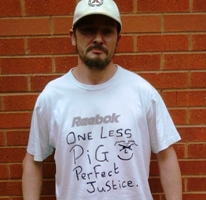Index relies entirely on the support of donors and readers to do its work.
Help us keep amplifying censored voices today.
If passed, the UK’s draft Communications Data Bill — also known as the “Snooper’s Charter” — will make room for the blanket storage of information on British citizen’s emails, text messages and internet activity. Companies would have to collect data they don’t currently retain, and the Home Secretary would have the power to request communications equipment manufacturers install hardware to make spying easier.
With these concerns in mind Index hosted a panel on the bill today chaired by trustee John Kampfner, who was joined by Index CEO Kirsty Hughes, Demos’s Jamie Bartlett, Emma Ascroft of Yahoo and Ian Brown from Oxford University.
There was consensus over the bill’s red flags, particularly its broad language and wide extension of surveillance powers to anyone who provides telecommunications operating systems. This would include social networks and domain name registries.
K Hughes @indexcensorship: danger that authoritarian regimes will adopt & imitate UK’ssnoopers’ charter. #commsdata
— Natasha Schmidt (@tasheschmidt) October 18, 2012
For Yahoo’s Emma Ascroft, it was unclear what consideration the UK’s Home Office had given to jurisdiction boundaries. The broad nature of the bill means the UK would be the first country to extend its jurisdiction, creating a reserve power to “require UK providers to retain data that they could not obtain directly.” The Home Office has acknowledged, Ascroft said, that the UK would be the first country to extend its jurisdiction in this way, but added there will be a “tension” where UK citizens’ data is available to foreign law enforcement authorities. This would, she warned, lead to a “complex patchwork of overlapping laws”.
Of equal concern was them chilling effect the bill could have if passed, as Index CEO Kirsty Hughes described:
It risks undermining anonymity, particularly whistleblowing, if user data can be tracked and comprehensively collected.
K.Hughes @indexcensorship: govt sending mixed messages. You can’t defend online freedoms in one context, withdraw them in another #commsdata
— robertsharp59 (@robertsharp59) October 18, 2012
Hughes @indexcensorship: Is the Govt’s first duty to protect our SECURITY or our RIGHTS? #CommsData
— robertsharp59 (@robertsharp59) October 18, 2012
But despite conceding no other democracies had gone as far as the UK proposes to go, Jamie Bartlett felt the bill didn’t go far enough. Emphatic that he was “in favour of regulated, transparent and clear powers of surveillance”, he said there were far greater problems posed by the ability of the government to access open source social media content, which is currently not covered by the Regulation of Investigatory Powers Act (RIPA). Writing for Index today, Bartlett said:
This type of widespread, mass social media monitoring needs to regulated, limited, and put on a legal footing.
Yet the fact that the bill is not subject to judicial oversight, combined with the prospect of a backstop power, worried some. For Oxford University’s Ian Brown, the latter went to “the heart of proportionality”, which Index and other rights groups have flagged as one of the bill’s greatest flaws.
“The Home Office has to come out of its comfort zone,” Ascroft concluded, pointing to internal conflict over the bill. “The Foreign Office, justice department, culture department, they all have anxieties.”
While she predicted the bill would be amended, Hughes suggested there was a risk this would not go far enough. “We need the UK’s voice out there defending digital freedom,” she said.
I hope that the panellists at the @indexcensorship #snooperscharter debate are right that the committee are learning fast! @julianhuppert
— Paul Bernal (@PaulbernalUK) October 18, 2012
The joint committee on the bill is due to report on 30 November.
Defamation laws allowed doping to thrive in the Tour de France, says Padraig Reidy, and the people who run the sport are still using the courts to silence critics (more…)
 A man has been sentenced to a total of eight months in prison by a Manchester court for wearing a T-shirt daubed with offensive comments referring the murders of PC Fiona Bone and PC Nicola Hughes.
A man has been sentenced to a total of eight months in prison by a Manchester court for wearing a T-shirt daubed with offensive comments referring the murders of PC Fiona Bone and PC Nicola Hughes.
Barry Thew, of Radcliffe, Greater Manchester admitted to a Section 4A Public Order Offence today (11 October) for wearing the T-shirt, on which he had written the messages ”One less pig; perfect justice” and “killacopforfun.com haha”.
Inspector Bryn Williams, of the Radcliffe Neighbourhood Policing Team, said: “To mock or joke about the tragic events of that morning is morally reprehensible and Thew has rightly been convicted and sentenced for his actions.”
Thew had been reported to police after wearing the article around three-and-a-half hours after the officers were shot dead in Greater Manchester on 2 October.
UPDATE: According to the Manchester Evening News, four months of Thew’s sentence was handed down for breach of a previous suspended sentence
Also this week
08 October 2012 | Man jailed for offensive Facebook comments about missing schoolgirl
09 October 2012 | Yorkshire man sentenced over offensive Twitter comments directed at soldiers
Index has today called for the British government to deliver on its promise of real libel reform. Here Daisy Williams lists five cases demonstrate how libel law can stifle debate, curtail criticism and even endanger lives (more…)